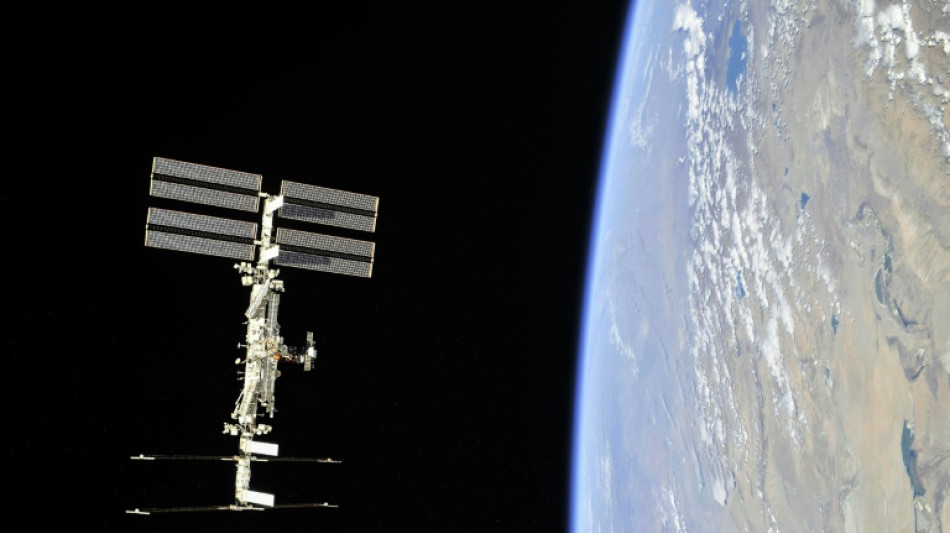
-
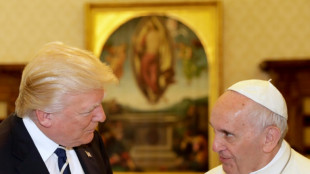 World leaders pay tribute to Pope Francis, dead at 88
World leaders pay tribute to Pope Francis, dead at 88
-
World leaders react to the death of Pope Francis
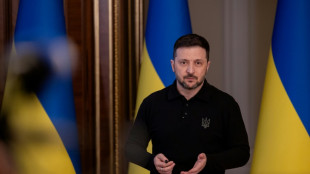
-
 Zimbabwe lead first Test despite Bangladesh spinner Mehidy's five wickets
Zimbabwe lead first Test despite Bangladesh spinner Mehidy's five wickets
-
Vatican postpones sainthood for 'God's influencer' after pope's death
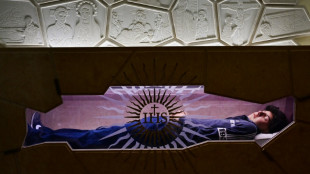
-
 Pope's death prompts CONI to call for sporting postponements, minute's silence
Pope's death prompts CONI to call for sporting postponements, minute's silence
-
Stunned and sad, faithful gather at St Peter's to remember Francis
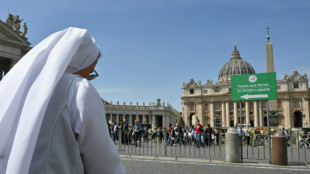
-
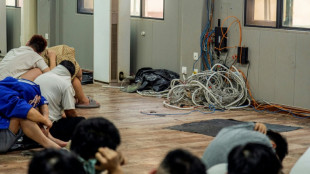 Asian scam centre crime gangs expanding worldwide: UN
Asian scam centre crime gangs expanding worldwide: UN
-
Davos meet founder Klaus Schwab steps down from WEF board
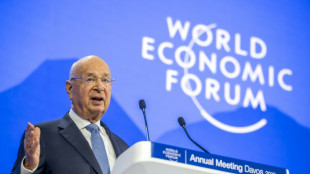
-
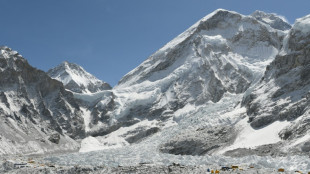 Himalayan snow at 23-year low, threatening 2 billion people: report
Himalayan snow at 23-year low, threatening 2 billion people: report
-
The beautiful game: Pope Francis's passion for football
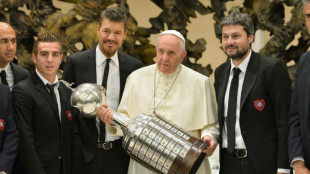
-
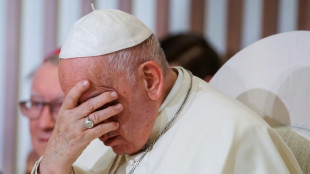 Clerical sex abuse: Pope Francis's thorniest challenge
Clerical sex abuse: Pope Francis's thorniest challenge
-
Pope Francis's delicate ties with politics in Argentina
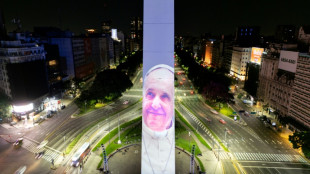
-
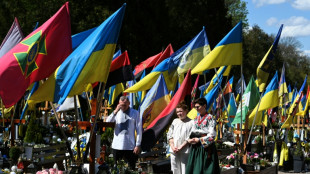 Russia resumes attacks on Ukraine after Easter truce
Russia resumes attacks on Ukraine after Easter truce
-
Pope Francis has died aged 88
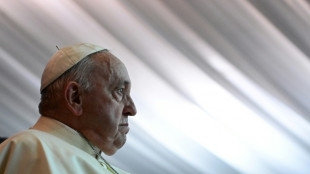
-
 Gaza civil defence describes medic killings as 'summary executions'
Gaza civil defence describes medic killings as 'summary executions'
-
Francis: radical leader who broke the papal mould
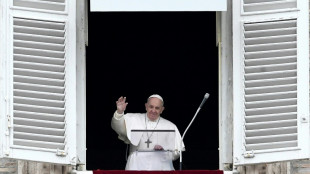
-
 Oscar stars, Max keeps mum, Sainz alive - Saudi GP talking points
Oscar stars, Max keeps mum, Sainz alive - Saudi GP talking points
-
Iyer, Kishan win back India contracts as Pant's deal upgraded

-
 Vance lands in India for tough talks on trade
Vance lands in India for tough talks on trade
-
Inside South Africa's wildlife CSI school helping to catch poachers
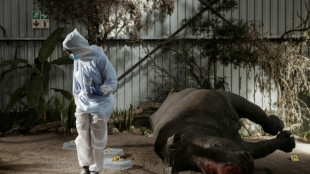
-
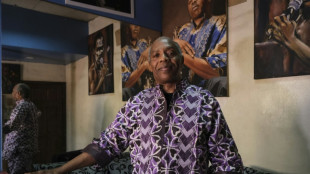 Nigerian Afrobeat legend Femi Kuti takes a look inward
Nigerian Afrobeat legend Femi Kuti takes a look inward
-
Kim Kardashian: From sex tape to Oval Office via TV and Instagram

-
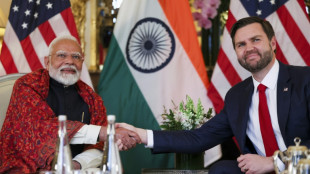 Vance in India for tough talks on trade
Vance in India for tough talks on trade
-
Thunder crush Grizzlies as Celtics, Cavs and Warriors win

-
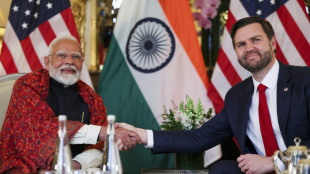 Vance heads to India for tough talks on trade
Vance heads to India for tough talks on trade
-
China slams 'appeasement' of US as nations rush to secure trade deals
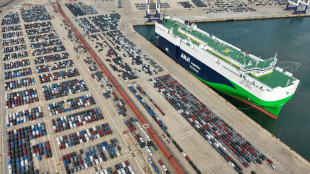
-
 'Grandpa robbers' go on trial for Kardashian heist in Paris
'Grandpa robbers' go on trial for Kardashian heist in Paris
-
Swede Lindblad gets first win in just third LPGA start

-
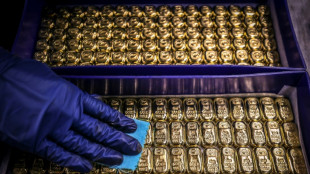 Gold hits record, dollar drops as tariff fears dampen sentiment
Gold hits record, dollar drops as tariff fears dampen sentiment
-
As Dalai Lama approaches 90, Tibetans weigh future

-
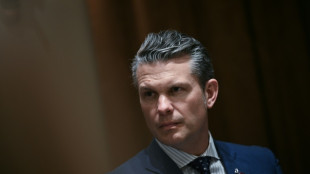 US defense chief shared sensitive information in second Signal chat: US media
US defense chief shared sensitive information in second Signal chat: US media
-
Swede Lingblad gets first win in just third LPGA start

-
 South Korea ex-president back in court for criminal trial
South Korea ex-president back in court for criminal trial
-
Thunder crush Grizzlies, Celtics and Cavs open NBA playoffs with wins

-
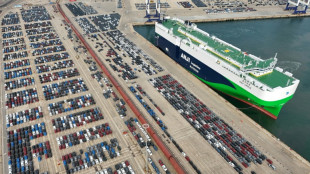 Beijing slams 'appeasement' of US in trade deals that hurt China
Beijing slams 'appeasement' of US in trade deals that hurt China
-
Trump in his own words: 100 days of quotes
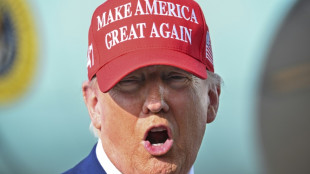
-
 Padres say slugger Arraez 'stable' after scary collision
Padres say slugger Arraez 'stable' after scary collision
-
Trump tariffs stunt US toy imports as sellers play for time

-
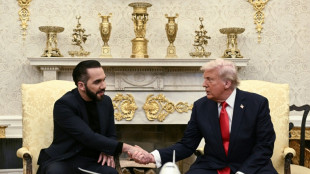 El Salvador offers to swap US deportees with Venezuela
El Salvador offers to swap US deportees with Venezuela
-
Higgo holds on for win after Dahmen's late collapse

-
 Moolec Science Enters Into Transformational Transaction Expanding Across Multiple Technology Platforms
Moolec Science Enters Into Transformational Transaction Expanding Across Multiple Technology Platforms
-
El Salvador's president proposes prisoner exchange with Venezuela
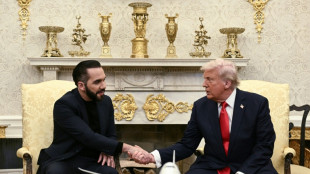
-
 Gilgeous-Alexander, Jokic, Antetokounmpo named NBA MVP finalists
Gilgeous-Alexander, Jokic, Antetokounmpo named NBA MVP finalists
-
Thomas ends long wait with playoff win over Novak

-
 Thunder rumble to record win over Grizzlies, Celtics top Magic in NBA playoff openers
Thunder rumble to record win over Grizzlies, Celtics top Magic in NBA playoff openers
-
Linesman hit by projectile as Saint-Etienne edge toward safety

-
 Mallia guides Toulouse to Top 14 win over Stade Francais
Mallia guides Toulouse to Top 14 win over Stade Francais
-
Israel cancels visas for French lawmakers

-
 Russia and Ukraine trade blame over Easter truce, as Trump predicts 'deal'
Russia and Ukraine trade blame over Easter truce, as Trump predicts 'deal'
-
Valverde stunner saves Real Madrid title hopes against Bilbao


When Russia leaves, what's next for the International Space Station?
Russia's announcement this week that it will leave the International Space Station "after 2024" raises critical questions about the outpost's future viability.
Here's what you should know about Moscow's decision, and the potential effect on one of the last remaining examples of US-Russia cooperation.
- Why does Russia want to leave? -
Russia's invasion of Ukraine has pitted it against the West, eviscerating its relationship with the United States and leading to broad sanctions, including against its space industry.
Back in March, Dmitry Rogozin, then-chief of Russian space agency Roscosmos, warned that without his nation's cooperation, the ISS could plummet to Earth on US or European territory.
But Rogozin's penchant for bombast, combined with a lack of a firm plan, left things uncertain -- and just two weeks ago, Russia and the United States vowed to continue flying each other's cosmonauts and astronauts to the station.
Scott Pace, director of the Space Policy Institute at George Washington University, said that if anything, the new announcement by Rogozin's successor Yury Borisov was "mildly helpful."
"The fact they said, 'We're going to be committed through 2024' is good," Pace, a former high-ranking government official, told AFP.
It means Moscow isn't planning to pull out sooner, even though what precisely is meant by "after 2024" isn't yet clear.
The year 2024 is what the partners had previously agreed to, though NASA's goal is to keep the ISS in orbit until at least 2030 and then transition to smaller commercial stations.
The next step in the process is to notify a body called the multilateral control board, comprising all the ISS partners -- the United States, Russia, Europe, Japan and Canada -- at which point details of the transition will be defined.
If Russia does follow through, it could end up grounding its once proud space program for some time. The country doesn't have a commercial space economy, and Russian analysts don't see the country building a new station anytime soon.
- Can the station fly without Russia? -
Probably -- but it would be challenging.
The ISS was launched in 1998 at a time of hope for US-Russia cooperation following their Space Race competition during the Cold War.
Since the Space Shuttle was retired, the ISS has relied on Russian propulsion systems for periodic boosts to maintain its orbit, some 250 miles (400 kilometers) above sea level. The US segment is responsible for electricity and life support systems.
The United States has recently taken strides in gaining an independent propulsion system through Northrop Grumman's Cygnus spacecraft, which successfully carried out a re-boost test in late June.
But altitude is only a part of the equation: the other is "attitude," or orientation.
Cygnus "can push, but it can't keep the station pointed in the right direction while it pushes," explained astronomer and space watcher Jonathan McDowell.
The ISS itself can make small attitude adjustments, but if the Russians pulled out, the United States would need a more permanent solution -- perhaps involving the SpaceX Dragon, Northrop Grumman's Cygnus or Orion, said Pace.
Russia has two propulsion systems: progress spaceships that dock to the station and the Zvezda service module. All of the control systems are handled out of Moscow.
It would be helpful if Russia left their segment in place rather than took it with them when they go -- one of the station's two bathrooms are on the Russian side -- observed Pace, but that's another unknown.
"If it's still there, and we wanted to use it, would there be some sort of rental arrangement? I don't know."
- What do experts predict? -
NASA itself has adopted a bullish position.
"We're running and gunning, we're gonna go to 2030 full up," Joel Montalbano, NASA ISS program manager, said Tuesday on the morning of the Russian announcement.
"Anybody thinks that there's a different plan, you're wrong."
But while Russia's withdrawal could present a new opportunity for the private sector, McDowell isn't so certain.
For him, "how hard they really want to work to get an extra few years out of ISS" is an open question.
"It's maybe not the right move for the US to go to extreme lengths to save (the) Station," he said, especially since NASA has bigger goals of building a lunar space station called Gateway, establishing a Moon presence and going to Mars.
"Maybe they should take the Russian pull-out as an excuse, and go, 'Okay, bye.' And now let's put our money in Gateway."
T.Bondarenko--BTB



